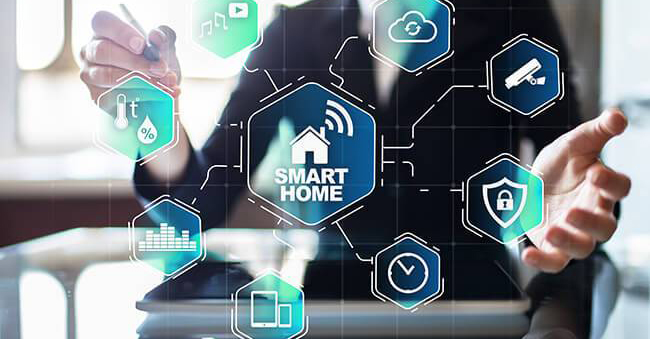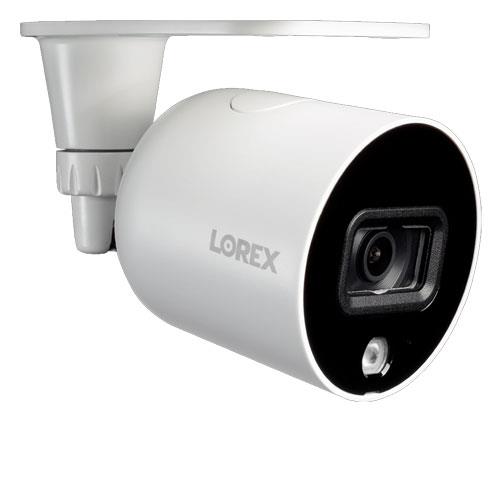Benefits of CCTV Cameras for Home Use
CCTV cameras for home
CCTV cameras are an effective way to monitor your home and property, and they provide a deterrent to burglars and intruders. In this article, we will explore the benefits of CCTV cameras for home use and offer some tips on how to choose and install them.
Benefits of CCTV Cameras for Home Use
- Deter Burglars and Intruders The primary benefit of CCTV cameras for home use is that they deter burglars and intruders. Burglars and intruders are less likely to attempt to break into a home if they know that the property is under surveillance. Even the presence of visible CCTV cameras can be enough to deter potential burglars and intruders from attempting to break in.
- Monitor Your Home and Property CCTV cameras allow you to monitor your home and property remotely. You can keep an eye on your property even when you are not at home. This is particularly useful if you have children, elderly relatives, or pets at home. You can use CCTV cameras to check in on them and ensure that they are safe and secure.
- Provide Evidence in the Event of a Crime CCTV cameras can provide valuable evidence in the event of a crime. If a burglary or break-in occurs, CCTV footage can help the police to identify the intruder and provide evidence in court. This can increase the chances of a successful prosecution and help to recover stolen property. Contact local Police if your CCTV cameras record crime 222 Tips
- Lower Home Insurance Premiums Homeowners who install CCTV cameras may be eligible for lower home insurance premiums. Insurance companies view CCTV cameras as an effective way to improve security and reduce the risk of burglary and theft. Installing CCTV cameras can help to reduce the risk of a break-in and may lead to lower insurance premiums.
Choosing the Right CCTV Cameras for Your Home When choosing CCTV cameras for your home, there are several factors to consider.
- Indoor or Outdoor Cameras The first decision to make is whether you want indoor or outdoor cameras. Indoor cameras are typically smaller and less noticeable than outdoor cameras, and they are designed to be used inside the home. Outdoor cameras are designed to be weather-resistant and durable, and they can withstand harsh weather conditions.
- Wired or Wireless Cameras CCTV cameras can be wired or wireless. Wired cameras are connected to a DVR (digital video recorder) or NVR (network video recorder) using cables. Wireless cameras, on the other hand, transmit footage wirelessly to a receiver or recorder. Wireless cameras are easier to install than wired cameras, but they can be more expensive.
- Image Quality Image quality is an important factor to consider when choosing CCTV cameras. High-quality cameras provide clear, sharp images that are easier to analyze and use as evidence. Look for cameras with a high resolution and a high frame rate. The higher the resolution and frame rate, the better the image quality.
- Night Vision Night vision is another important factor to consider. Look for cameras with infrared (IR) technology, which allows the camera to see in the dark. Some cameras have built-in IR illuminators, which provide additional lighting in low-light conditions.
- Motion Detection is a useful feature that can help to conserve storage space and reduce false alarms. Look for cameras with advanced motion detection technology that can distinguish between human activity and other movements, such as pets or wildlife.
Installing CCTV Cameras at Home
Installing CCTV cameras at home is a relatively straightforward process, but it is important to follow some basic guidelines to ensure that the cameras are installed correctly.
- Determine the Best Locations The first step is to determine the best locations for the cameras. Think about the areas of your home that are most vulnerable to break-ins or
CCTV (Closed Circuit Television) cameras are no longer just for businesses or public spaces. With the rise of home security concerns, many homeowners are now installing CCTV cameras to protect their homes and loved ones. In this article, we will discuss some tips and benefits of using CCTV cameras for home security.
Why use CCTV cameras for home security?
CCTV cameras are an effective way to enhance home security. Here are some benefits of using CCTV cameras for home security:
- Deter crime: CCTV cameras act as a deterrent to criminals. Burglars are less likely to target homes with visible CCTV cameras as they are more likely to be caught.
- Record evidence: CCTV cameras can record evidence of any crime that takes place in or around your home. This can help identify the perpetrators and provide valuable evidence for the police.
- Monitor activity: CCTV cameras can help you monitor any suspicious activity around your home, such as trespassers or unwanted visitors.
- Remote monitoring: Many modern CCTV cameras come with remote monitoring features. This allows you to keep an eye on your home from anywhere in the world, providing peace of mind when you’re away from home.
Tips for using CCTV cameras for home security
- Determine the right location The first step in using CCTV cameras for home security is to determine the right location. You should place cameras in areas that are most vulnerable to criminal activity, such as entrances, exits, and windows. You should also consider the height and angle of the cameras, as this can affect the field of view. If possible, you should mount the cameras at a higher angle to get a better view of the area.
- Use high-quality cameras Investing in high-quality CCTV cameras is crucial for getting the best results. High-quality cameras will provide clear images, even in low-light conditions, which can be crucial in identifying criminals. Moreover, they will offer better resolution, which can be beneficial when it comes to identifying faces, license plates, or other critical details. You should also consider the weather-resistant and durability features of the cameras if you plan to use them outside.
- Choose the right recording system The recording system is a crucial part of CCTV cameras as it is responsible for storing and retrieving footage. There are two primary types of recording systems: digital video recorders (DVRs) and network video recorders (NVRs). DVRs are a more traditional option and are ideal for small to medium-sized homes. NVRs, on the other hand, are more advanced and are better suited for larger homes or homes with multiple cameras.
- Set up remote monitoring Remote monitoring allows you to access the footage from your CCTV cameras from anywhere in the world. This is particularly useful if you are away from home and want to keep an eye on things. Most modern CCTV systems offer remote monitoring features, and you should ensure that you set up this feature to get the most out of your cameras.
- Notify people of CCTV cameras It’s essential to inform people that CCTV cameras are in use in the area. This can help avoid any legal issues that may arise if someone feels that their privacy has been violated. You can do this by placing signs in the area, which inform people that CCTV cameras are in use.
- Be aware of privacy laws When using CCTV cameras, it’s important to be aware of privacy laws. In many jurisdictions, it is illegal to record audio without the consent of the people being recorded. Moreover, there may be restrictions on where you can place the cameras, particularly in areas where people expect privacy, such as bathrooms or bedrooms.
- Regular maintenance Performing regular maintenance on your CCTV cameras is crucial for ensuring that they work correctly. Regular maintenance can help prevent equipment failure, which can lead to security breaches.



